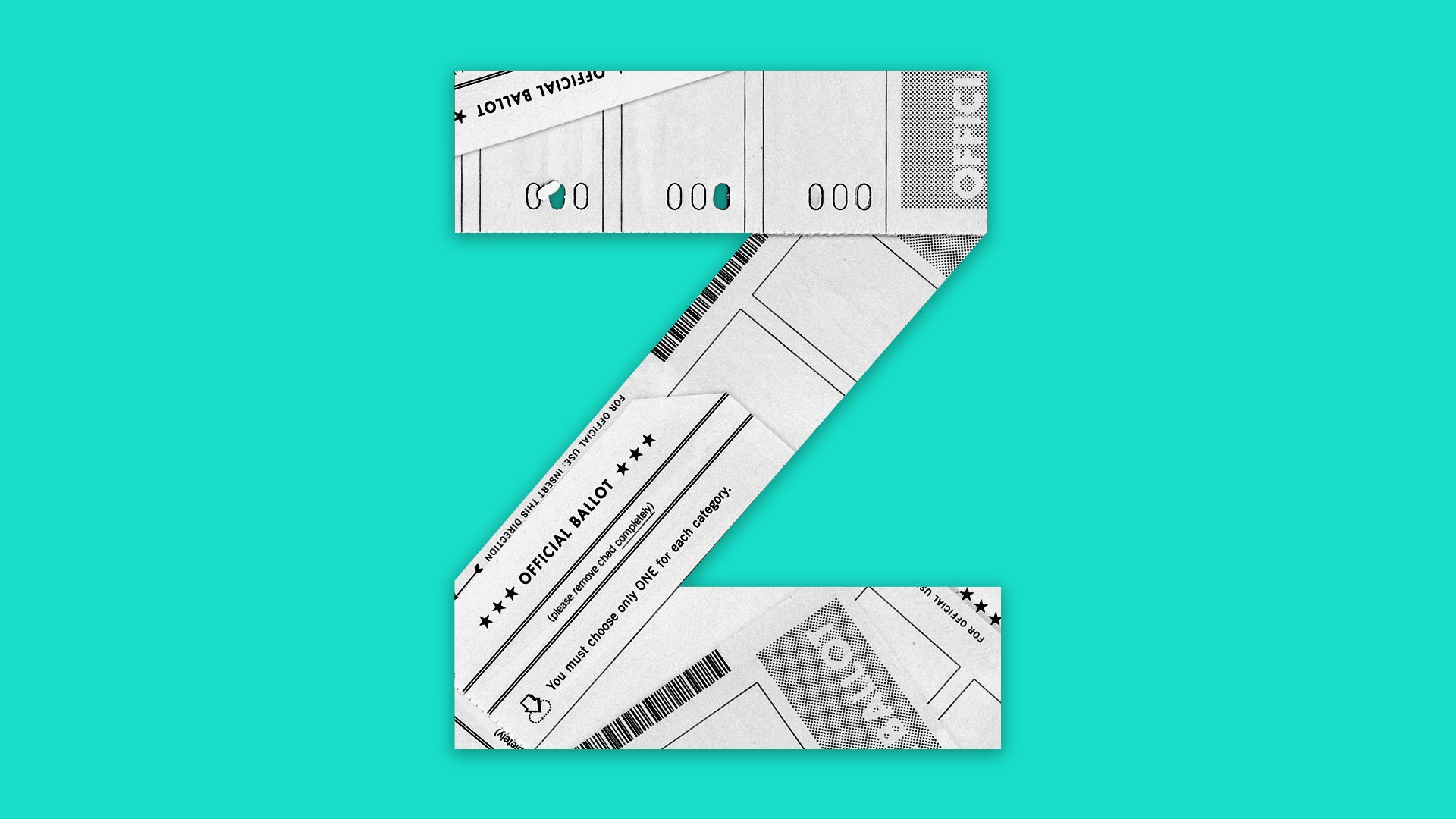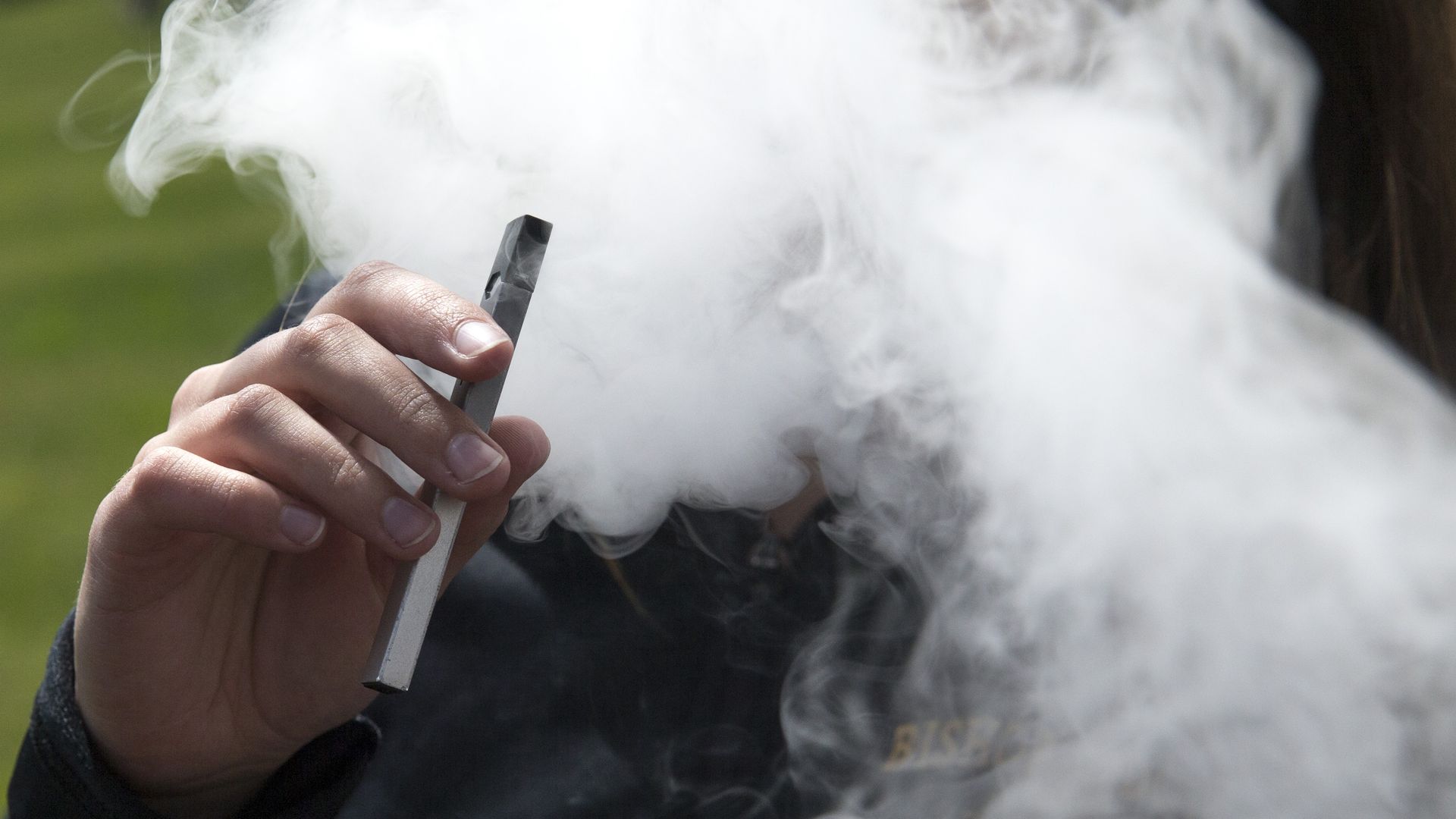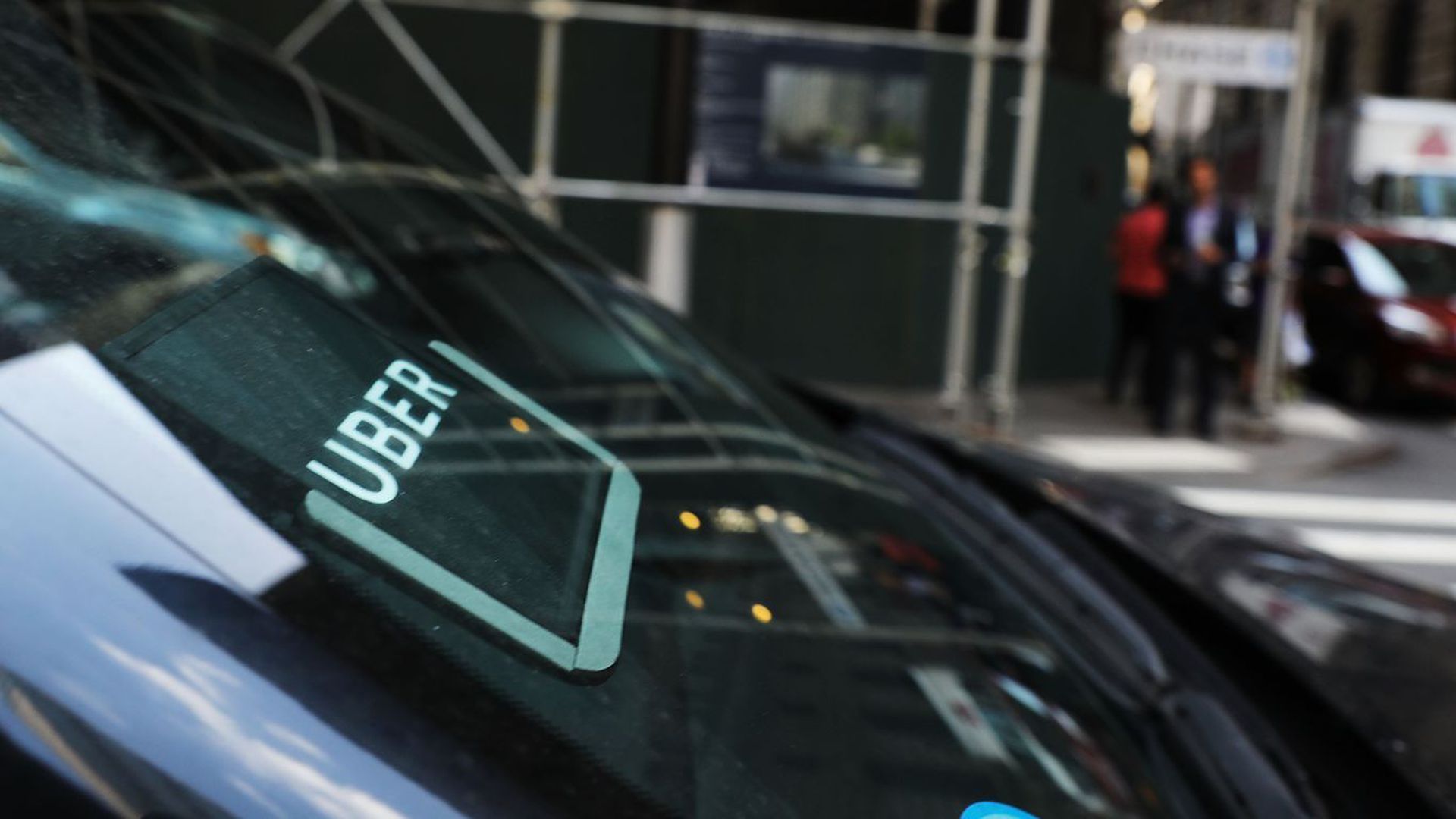| They crave work-life balance and mental health support. They dread getting stuck in a dull job. And they fault today's decision-makers for downplaying the issues that move them, like school shootings and racism, Jennifer A. Kingson writes. Meet Gen Z, as depicted by a new report. Why it matters: Gen Zers — those born between 1997 and 2012 — will soon be the biggest U.S. voting cohort, and they vote in record numbers. - Plus, they'll make up 27% of the workforce in three years, per the World Economic Forum.
Driving the news: The report, from the Walton Family Foundation and Murmuration (an educational inequality nonprofit founded by Emma Bloomberg), paints a picture of a generation that prizes family and well-being over money-making, isn't afraid to job-hop, and sees civic participation as vital to advancing their values. - They "have low expectations that the government, corporations, and other institutions will prioritize them or take their needs into consideration," the report found.
- They're "less conservative than previous generations and take a more progressive stance" on issues like social justice and climate change.
- And they "see standing up for the voiceless as central to their identity, more than any other generation in America."
By the numbers: Gen Zers are different... Professionally: They spend an average of only 2 years and 3 months at any given job, per CareerBuilder. Compare that to 2 years and 9 months for millennials, 5 years and 2 months for Gen Xers, and 8 years and 3 months for baby boomers. Politically: Unlike prior generations, Gen Z "has not experienced a moment when America was united," the report notes. Demographically: They're "the most racially and ethnically diverse" cohort in U.S. history, per the Pew Research Center. 52% are non-Hispanic white, compared with 61% of millennials in 2002 (when they were in the same age range), Pew says. Gen Zers are also about twice as likely (42% to 23%) to say they experience depression and feelings of hopelessness compared with other generations, the report said. - And they're three times as likely (18% to 5%) to say they've considered self-harm or suicide.
Jennifer's thought bubble: What a difference a generation makes. At the cusp of the baby boom/Gen X transition, kids were so career-focused that "fully 40% of the 1986 Yale graduating class applied to [work at] a single company — the investment-banking firm First Boston," according to Geoffrey T. Holtz's 1995 book "Welcome to the Jungle." The bottom line: Gen Z "will have an outsized influence on the future of the nation, and society more broadly," the report found. Evidence includes "the pressure they are putting on employers" and how they're "taking to the streets to protest gun violence or promote reproductive health." Share this story. If you or someone you know may be considering suicide, contact the National Suicide Prevention Lifeline at 1-800-273-8255 (En Español: 1-888-628-9454; Deaf and Hard of Hearing: dial 711, then 1-800-273-8255) or the Crisis Text Line by texting HOME to 741741. | 








No comments:
Post a Comment